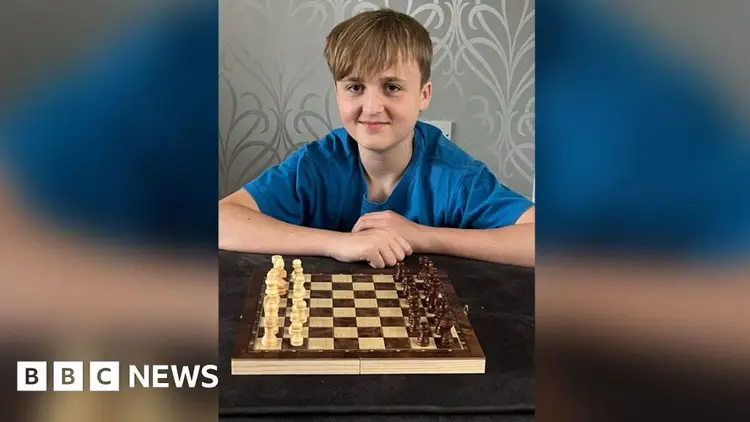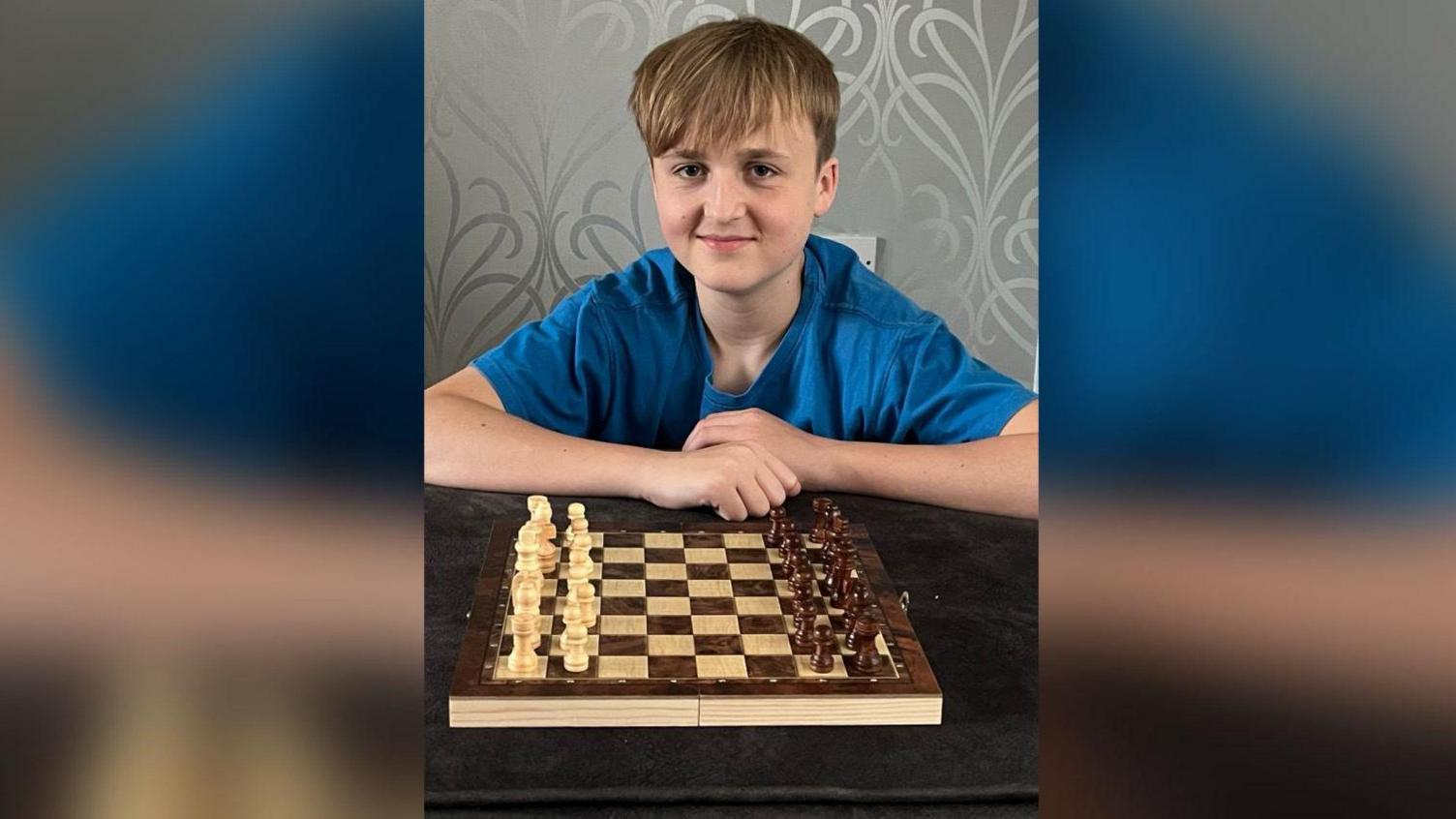Medway: Boy, 15, plays chess to calm fears during surgery

Photo credit: Medway NHS Foundation Trust
Calum was among the initial patients to test the treatment, engaging in a game of chess while undergoing the procedure.

BBC News, Southeast Region
A young person engaged in a game of chess while undergoing a minor foot surgery, as part of a hospital program aimed at reducing anxiety through distraction and relaxation methods.
According to Medway Maritime Hospital, studies indicate that 75% of kids feel anxious when they are in the anesthesia room.
Calum was among the first patients to test the treatment, using chess and other relaxation methods during his procedure.
After the surgery went well, the 15-year-old was able to return home right away.
The theatre team also assisted Calum in calming down by using deep breathing exercises and guided imagery. They encouraged him to visualize himself gaming at home and enjoying his favorite snacks.
The advantage of this method is that it eliminates the necessity for general anesthesia, which is often associated with a longer recovery time, according to the hospital.
Calum's mom, Laura, who is a nurse at the hospital, expressed that the family was "very happy with the overall experience."
She mentioned that even though she felt a bit anxious at first about the pain associated with the surgery and the local anesthetic injection, the staff did a great job of calming her nerves with their compassionate care and helpful distraction methods.
"The chess game truly captivated his mind and distracted him from thinking about the surgery – he even came out on top!", she remarked.
Dr. Samantha Black, a consultant in pediatric and perioperative anesthesia at Medway NHS Foundation Trust, mentioned that anxiety related to anesthesia is a frequent issue faced by anesthetists, anesthesia practitioners, and the entire healthcare team.
Handling this situation with our young patients can bring numerous advantages, reducing their anxiety as well as that of their families and the caregivers attending to them.
"If not handled properly, this could lead to issues like the child requiring higher doses of anesthesia, experiencing more confusion, increased pain and nausea, and slower recovery, which may result in a longer hospital stay."
Connect with BBC Kent on Facebook, X, and Instagram. If you have story suggestions, reach out to us at [email protected] or send a WhatsApp message to 08081 002250.











































